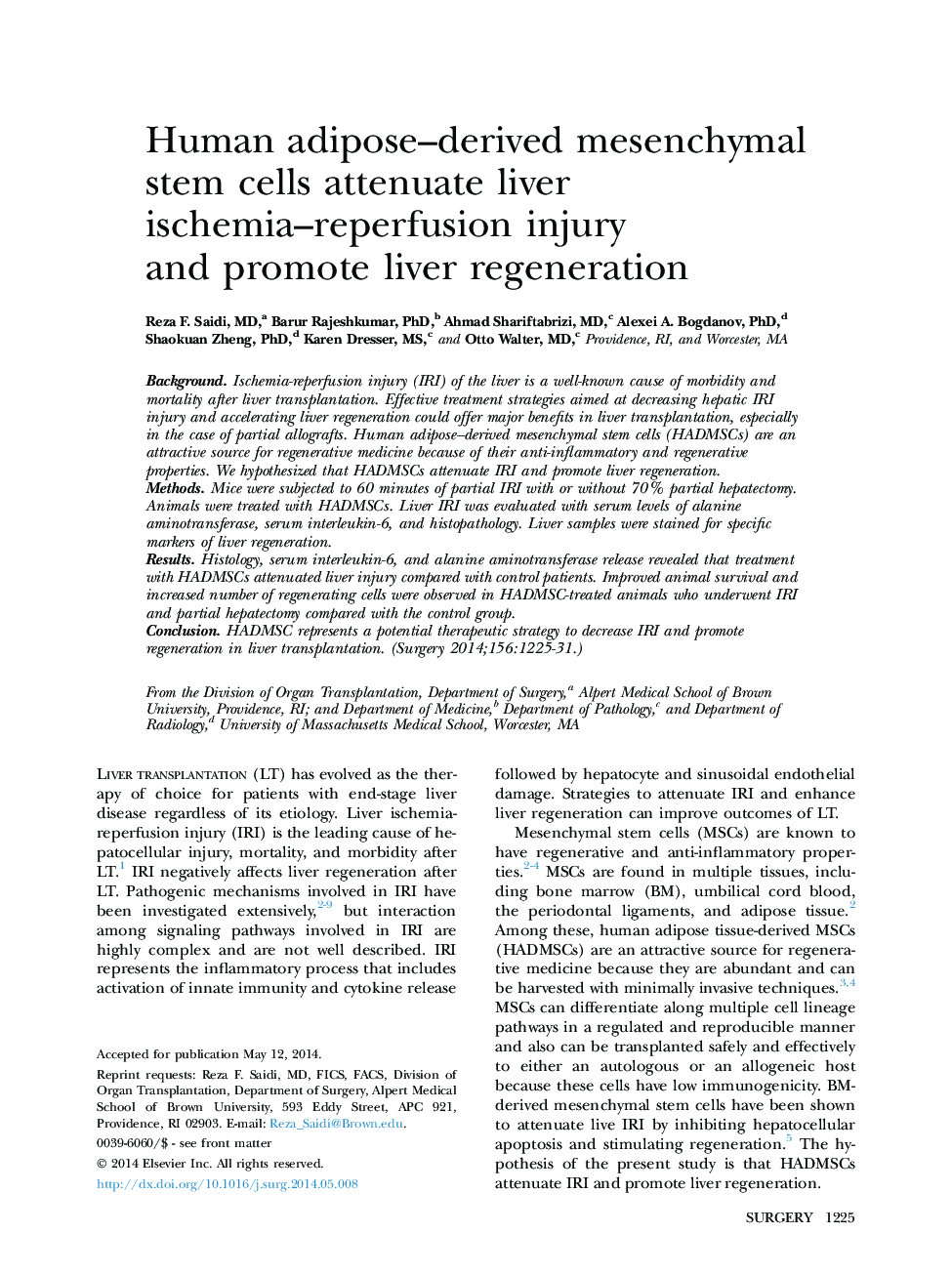| Article ID | Journal | Published Year | Pages | File Type |
|---|---|---|---|---|
| 4307511 | Surgery | 2014 | 7 Pages |
BackgroundIschemia-reperfusion injury (IRI) of the liver is a well-known cause of morbidity and mortality after liver transplantation. Effective treatment strategies aimed at decreasing hepatic IRI injury and accelerating liver regeneration could offer major benefits in liver transplantation, especially in the case of partial allografts. Human adipose–derived mesenchymal stem cells (HADMSCs) are an attractive source for regenerative medicine because of their anti-inflammatory and regenerative properties. We hypothesized that HADMSCs attenuate IRI and promote liver regeneration.MethodsMice were subjected to 60 minutes of partial IRI with or without 70% partial hepatectomy. Animals were treated with HADMSCs. Liver IRI was evaluated with serum levels of alanine aminotransferase, serum interleukin-6, and histopathology. Liver samples were stained for specific markers of liver regeneration.ResultsHistology, serum interleukin-6, and alanine aminotransferase release revealed that treatment with HADMSCs attenuated liver injury compared with control patients. Improved animal survival and increased number of regenerating cells were observed in HADMSC-treated animals who underwent IRI and partial hepatectomy compared with the control group.ConclusionHADMSC represents a potential therapeutic strategy to decrease IRI and promote regeneration in liver transplantation.
